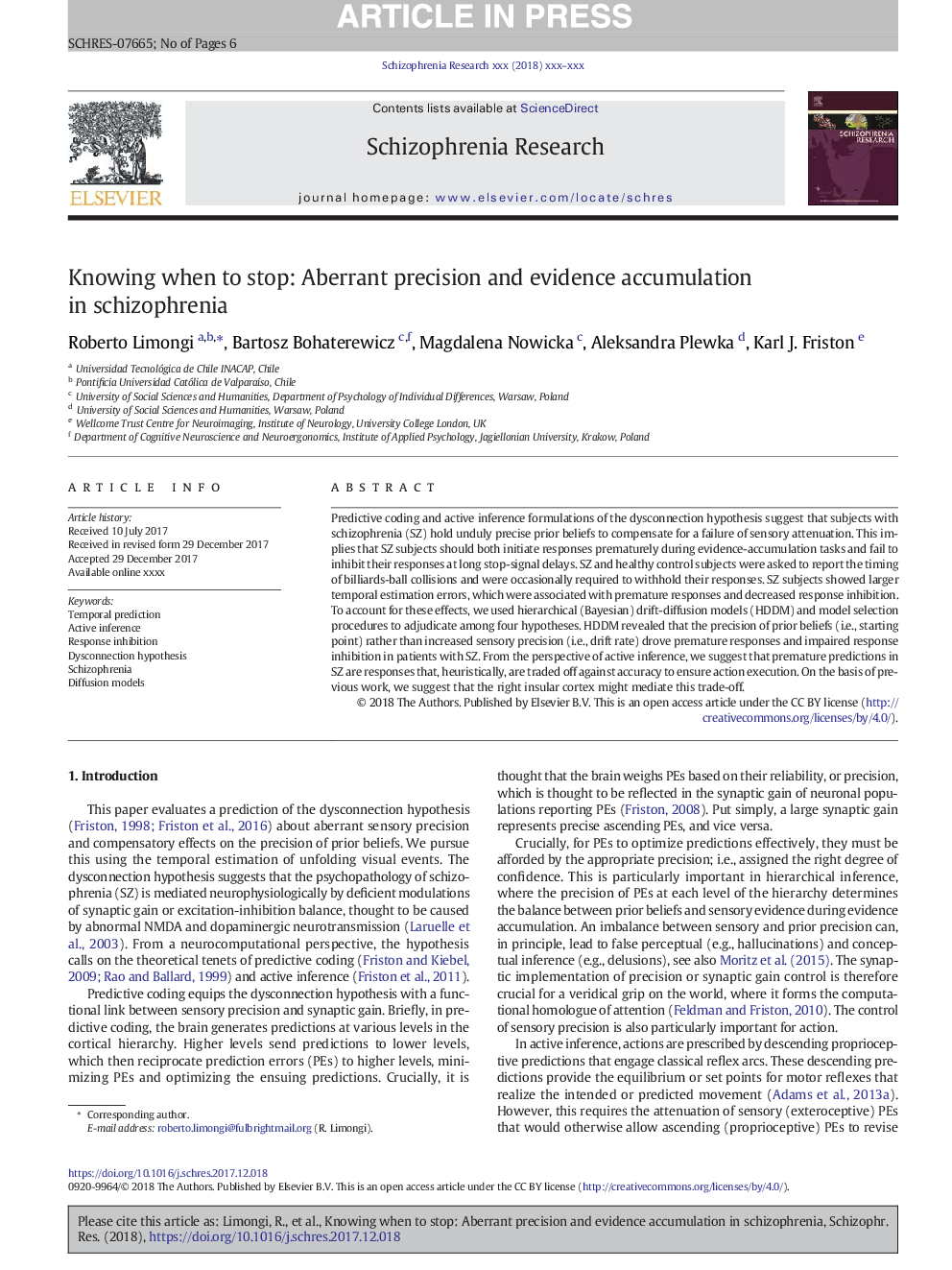| کد مقاله | کد نشریه | سال انتشار | مقاله انگلیسی | نسخه تمام متن |
|---|---|---|---|---|
| 6820857 | 1434046 | 2018 | 6 صفحه PDF | دانلود رایگان |
عنوان انگلیسی مقاله ISI
Knowing when to stop: Aberrant precision and evidence accumulation in schizophrenia
ترجمه فارسی عنوان
دانستن اینکه چه زمانی باید متوقف شود: دقت بی اهمیت و تجمع شواهد در اسکیزوفرنیا
دانلود مقاله + سفارش ترجمه
دانلود مقاله ISI انگلیسی
رایگان برای ایرانیان
کلمات کلیدی
موضوعات مرتبط
علوم زیستی و بیوفناوری
علم عصب شناسی
علوم اعصاب رفتاری
چکیده انگلیسی
Predictive coding and active inference formulations of the dysconnection hypothesis suggest that subjects with schizophrenia (SZ) hold unduly precise prior beliefs to compensate for a failure of sensory attenuation. This implies that SZ subjects should both initiate responses prematurely during evidence-accumulation tasks and fail to inhibit their responses at long stop-signal delays. SZ and healthy control subjects were asked to report the timing of billiards-ball collisions and were occasionally required to withhold their responses. SZ subjects showed larger temporal estimation errors, which were associated with premature responses and decreased response inhibition. To account for these effects, we used hierarchical (Bayesian) drift-diffusion models (HDDM) and model selection procedures to adjudicate among four hypotheses. HDDM revealed that the precision of prior beliefs (i.e., starting point) rather than increased sensory precision (i.e., drift rate) drove premature responses and impaired response inhibition in patients with SZ. From the perspective of active inference, we suggest that premature predictions in SZ are responses that, heuristically, are traded off against accuracy to ensure action execution. On the basis of previous work, we suggest that the right insular cortex might mediate this trade-off.
ناشر
Database: Elsevier - ScienceDirect (ساینس دایرکت)
Journal: Schizophrenia Research - Volume 197, July 2018, Pages 386-391
Journal: Schizophrenia Research - Volume 197, July 2018, Pages 386-391
نویسندگان
Roberto Limongi, Bartosz Bohaterewicz, Magdalena Nowicka, Aleksandra Plewka, Karl J. Friston,
